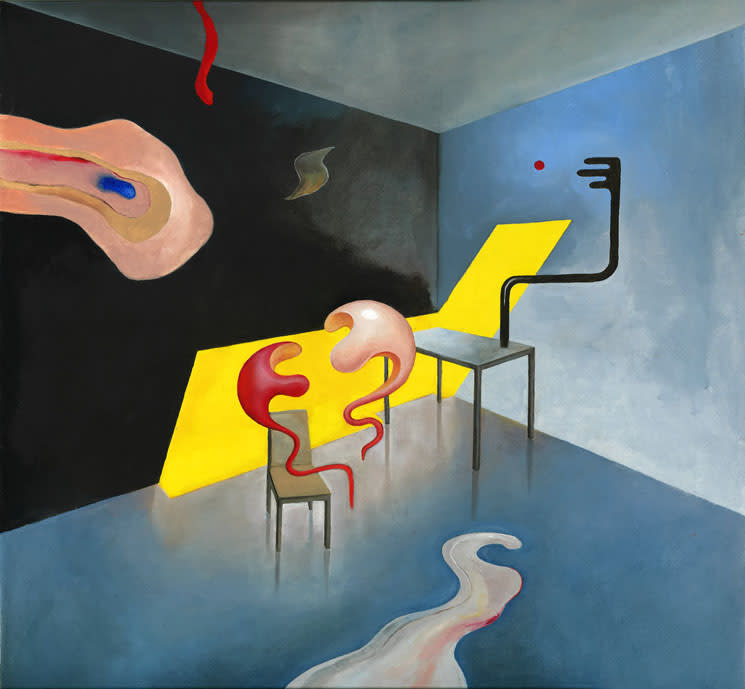Orange Milk label co-founder Seth Graham continues his quest to deconstruct modern music with Gasp, his first vinyl LP following a number of intriguing cassette releases. The artist has assembled a dizzying array of chopped-up musical instruments, vocal samples, random noise bursts and other audio ephemera into a delicious slurry. This frothy brew at times resembles 21st century classical composition and at others could be mistaken for a mutant form of modern pop music.
Ushered in on a wave of drawn-out tones, "My desire for you is to stop being a fuck wad" showcases Graham's jovial side with its hilarious title, yet plays out as a gorgeous slab of lush drone. The chaotic mashup of "Whisper - Slap" could be an elegant opera in another galaxy. "RMB" evokes modern composition with its chopped-up woodwinds and strings.
This classical music-on-acid approach is further extended via many of the album's short pieces, such as the delicate trio of "Kimochi," "Nai," and "Shi." The ultra-weird "Binary Tapioca" is positioned in musique concrète territory, and includes a mid-track breakdown replete with gut-churning grunts and chirrups.
With Gasp, Graham stands at a crossroads, evoking influential modern composers such as Noah Creshevsky yet diving headfirst down a technological rabbit hole that belies the act of composition altogether. He successfully navigates this circuitous and multi-dimensional route: his music is both extremely listenable and limitlessly mesmerizing.
(Orange Milk)Ushered in on a wave of drawn-out tones, "My desire for you is to stop being a fuck wad" showcases Graham's jovial side with its hilarious title, yet plays out as a gorgeous slab of lush drone. The chaotic mashup of "Whisper - Slap" could be an elegant opera in another galaxy. "RMB" evokes modern composition with its chopped-up woodwinds and strings.
This classical music-on-acid approach is further extended via many of the album's short pieces, such as the delicate trio of "Kimochi," "Nai," and "Shi." The ultra-weird "Binary Tapioca" is positioned in musique concrète territory, and includes a mid-track breakdown replete with gut-churning grunts and chirrups.
With Gasp, Graham stands at a crossroads, evoking influential modern composers such as Noah Creshevsky yet diving headfirst down a technological rabbit hole that belies the act of composition altogether. He successfully navigates this circuitous and multi-dimensional route: his music is both extremely listenable and limitlessly mesmerizing.
